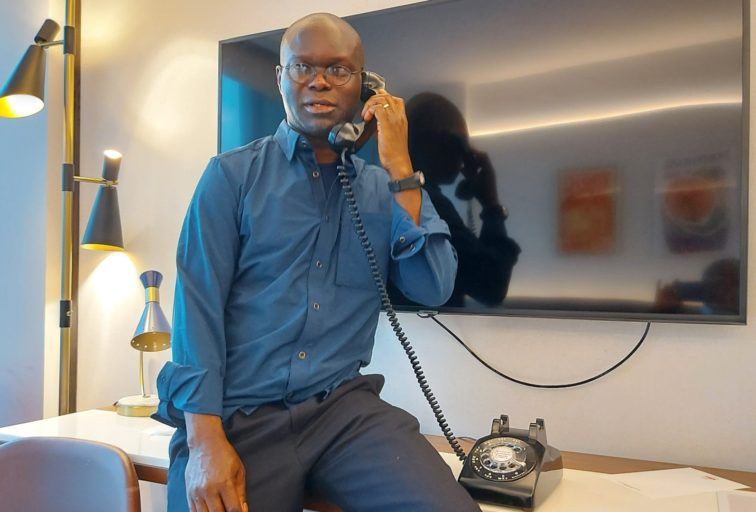The African Ubuntu (human) aphorism says, “I am because you are.”
Prioritizing community and connection, Dr. Elliot Masocha visits his home country of Zimbabwe annually to help end the poverty that he grew up with.
Dr. Elliot Masocha, a professor in Capital’s Political Science department, was born in Zimbabwe and came to Ohio University on scholarship in 2002. Masocha maintains the African belief of being “a son of the soil where one was born,” which compels him to frequently visit and invest in the people of Zimbabwe.
Born during Zimbabwe’s colonialism in 1967, Dr. Masocha’s childhood was spent in a rural grass-thatched hut, raising cattle and working in fields. Speaking on his childhood, Masocha said, “Growing up in African rural areas is tough because of a lack of children’s rights. There is child labor, lack of education and job opportunities, no good role models, and even cases of child marriages.”

He compares the stark differences between his childhood and his present life, noting that his first high school class was under a tree, ten miles away from his home.
“During colonial rule, there were few schools for local people, and after independence the government introduced compulsory children’s education and formed schools anywhere, without enough resources and under-qualified teachers”, Masocha said. “Now Zimbabwe has the highest literacy rate in Africa of above 90 percent. My story now as a professor is what education can do to all of us if we do not quit.”
After graduating from the University of Zimbabwe in 1992, he was a language and literature secondary school teacher before coming to the United States.
Masocha mentioned a number of cultural differences between the U.S. and Zimbabwe, saying, “The concept that it takes a village to raise a child is still strong in rural and urban Africa. Everyone is expected to keep an eye on children, and children are free to play outside without their parents bothering to watch them.”

Another cultural difference involves death and funerals.
“Rural funerals are open to everyone and are almost compulsory because if you do not attend, then you will be accused of having bewitched the dead person… Anyone can visit you anytime without appointment, mostly in rural areas, and they deserve to be offered food,” Masocha said.
Healso explained that being quick to anger is considered a virtue, or something to be proud of, rather than the opposite.
Masocha visits Zimbabwe with his family every year, for two months at a time, with plans to return in June 2022. His family also spends a couple weeks in Dubai and Doha to extend their holiday and learn about other cultures.
“I do not only visit, but I invest in my rural people by paying school fees for orphans at my rural secondary school, sponsoring adult soccer and netballs teams, providing solar-powered piped water and a grinding mill, and now planning for community gardens as ways of paying back and helping to end the poverty that I grew up in,” Masocha says. “I have also gathered and shipped books to many higher education institutions in Zimbabwe with one shipment ready right now.”

The COVID-19 pandemic has increased poverty in Zimbabwe. In a county with an unemployment rate of at least 80 percent, many people depend on selling fruits, vegetables, and other goods.
“When the pandemic came, it destroyed most people’s livelihoods, and some moved to rural areas to survive through subsistence farming,” Masocha explained. “However, with vaccination aimed to reach herd immunity by the end of the year, and low infection and death rates, the economy seems to be coming back strong.”
Zimbabwe’s economy is largely dependent on agriculture. The good soil allows everyone to grow their own food, but droughts brought on by climate change have also taken a toll on the success of agriculture in the country.
The African Ubuntu (human) concept that says, “I am because you are” inspires Dr. Masocha’s actions.
Referencing an article written by Carly Robb, Masocha explains that “this concept embraces the idea that humans cannot exist in isolation as we depend on connection, community, and caring, meaning that we cannot be without each other.”
In response to Masocha, the people of Zimbabwe are “very thankful, feel blessed to have me, and promise to always pray for my long life,” he said. “Most people are now motivated to help in any way they can from some of my teachings as I told them that it is possible for each of us to help those who need help anywhere in the world.”
Students can donate used books, clothes, and shoes to be shipped through CargoLink International to Zimbabwe. Dr. Masocha can be reached at emasocha@capital.edu.

